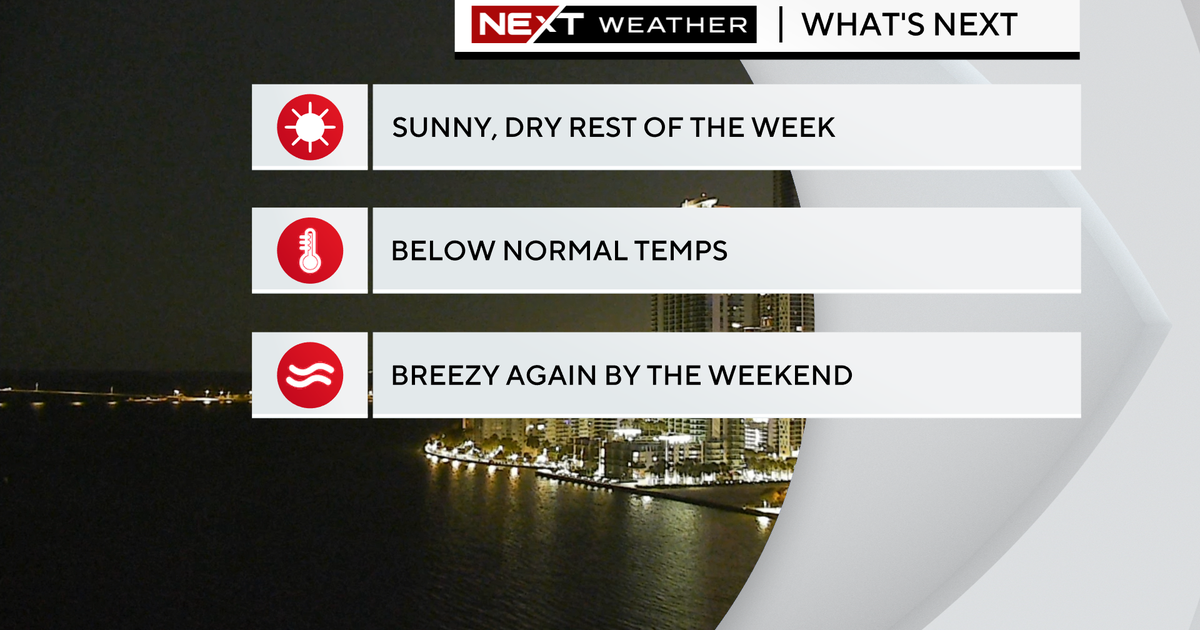Beryl No Longer A Tropical Storm, Strong Winds & Rain Still Threatening Puerto Rico
Follow CBSMIAMI.COM: Facebook | Twitter
MIAMI (CBSMiami) – Continuing to move rapidly west, Beryl is expected to travel through the Atlantic towards the Lesser Antilles.
Early Saturday the storm began to encounter wind shear which lowered the intensity from a hurricane to a tropical storm with wind speeds of 45 mph.
As the day continued, Beryl was downgraded again, this time from a tropical storm to a post-tropical cyclone.
As Beryl continues to move west, the shear will increase so it is not expected to become a hurricane again before crossing over the island chain late Sunday and early Monday.
Despite the downgrade, Beryl will still contain gusty downpours and impact an area that was devastated by Maria last year and has still yet to completely recover.
Moving through the Caribbean Monday and Tuesday, the storm is expected to pass just south of Puerto Rico with the latest forecast range actually moving a little farther north.
By the time it passes near the island, it may only be a tropical depression with wind speeds about 35 mph.
Even with a lower intensity, there will still be considerable rain and brief strong wind gusts impacting an area still recovering from the 2017 Hurricane season.
Heavy rain may cause flash flooding, especially in the higher terrains of Puerto Rico, Dominican Republic, and Haiti.
By the middle of the week the storm will dissipate into a tropical wave but the remnants will pass over Cuba and bring more widespread showers and storms to South Florida by the end of the week and next weekend.
Limiting showers early in the week will be the Saharan dust overhead keeping hazy skies and allowing just a few showers to pass through the area each day with the southeast breeze.
Widespread showers and storms will begin to develop over the area late Thursday and continue Friday and Saturday.
In addition to the moisture from Beryl moving into the area, look for increase surf to work south along the Florida Coastline as Tropical Storm Chris intensifies off the Carolina Coast and before moving northeast into the Atlantic.
No direct impacts from the storm are expected along the East Coast but increased surf, rip currents, and beach erosion will increase from the Carolinas and spread North up the Atlantic Coast.



